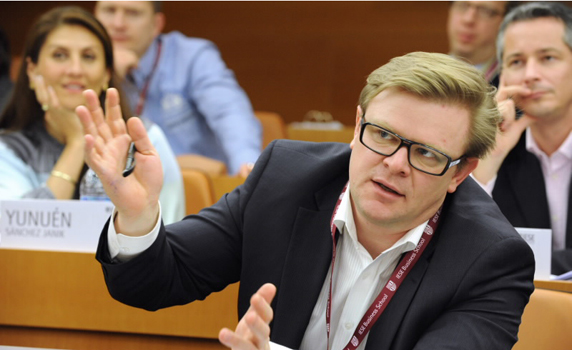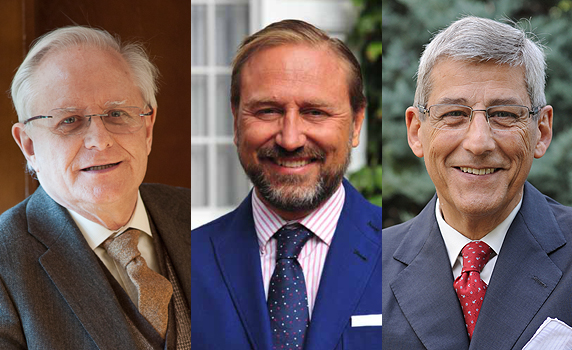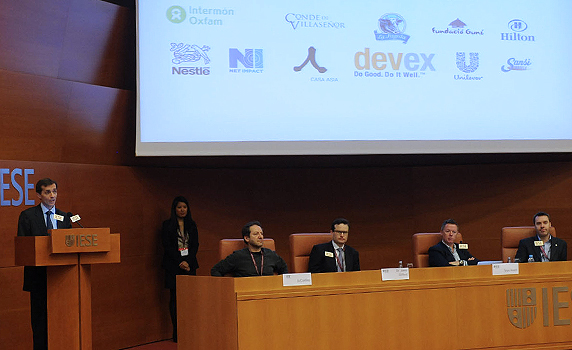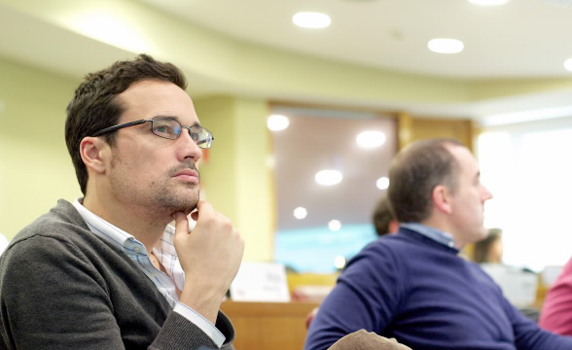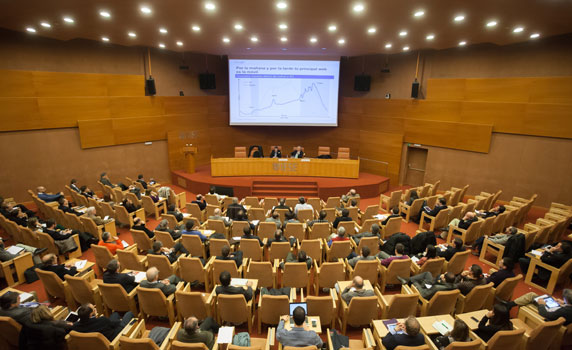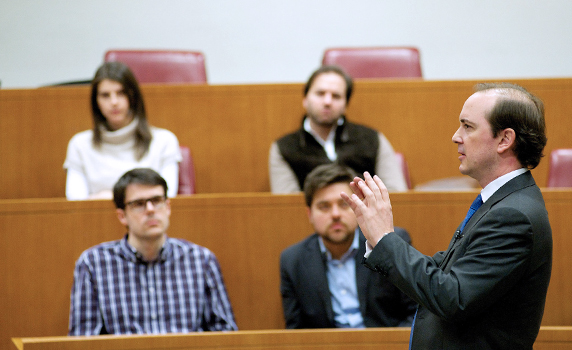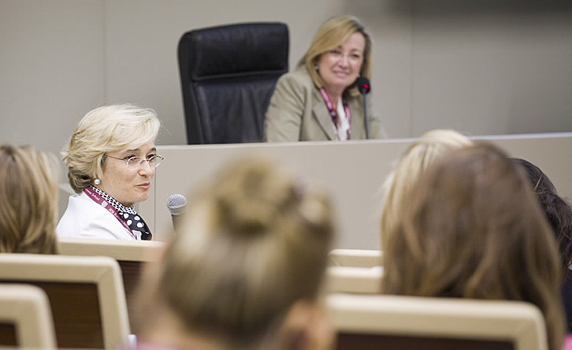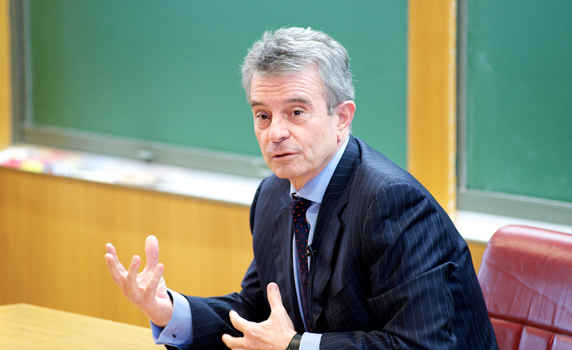
"Education is important, but the culture of hard work, solidarity and sacrifice is essential, even in the business world." This was one of the comments made by the president of AC Hotels, Antonio Catalán, during a talk he gave as part of the Global Leadership Series on February 15 on IESE’s Madrid campus. Catalán told EMBA students that common sense is fundamental to any business. He also talked about teamwork and said that trusting other people was a basic necessity in order to bring any business project to successful fruition.
Born in Corella (Navarra) in 1948, Catalán is an international figure in the hotel sector. He is the father of six children, a keen cyclist (22 years ago he completed the Camino de Santiago on a bicycle) and a modern art enthusiast. He understood from a young age that he wanted to set up his own business.
After getting a degree in business studies at the former Escuela de Comercio at the Navarra Public University and working in a roadside hotel that belonged to his father, at the age of 29 he opened his first hotel in Pamplona. He had three million pesetas from his family when he embarked on his project. Within two years he had recovered the investment. This is how the NH Hoteles chain was born.
Common Sense
"I had very little experience and it was a perfect time to make mistakes. I had little to lose. I used common sense, a desire to work and a dose of courage but that’s all," he recalls. Those were years when he was learning but also having fun. "The team I have worked with in my projects has always been fundamental to my life. I’ve always had good relationships with my people," he said.
"I see myself more as an entrepreneur than a business person," he said. He realized this when he went into alliance with the Italian magnate Carlo de Benedetti the main shareholder in the Cofir group. It was in the 1990s and, after a series of changes and discrepancies within the financial group that he had set up, Catalán ended up as the main shareholder in NH and sold all of his shares. He drew two conclusions from this: that trust between partners is fundamental and that sometimes you can’t do without risk capital but you have to decide what is the best option.
When he sold NH Hoteles in 1997 he acquired a fortune of 16 billion pesetas. He also ended up with two hotels. These provided the seed for the second and current business adventure, the AC Hoteles chain. Far from being cautious, he invested all of his capital in the new project. "We took a blank sheet of paper and I started to think, along with my partners, how we should and how we wanted to work. We learned from and corrected past errors. We executives have a problem, we cling to our errors. We have to try to correct them as soon as possible and know how to accept that we’ve made a mistake. This doesn’t undermine your authority, on the contrary."
A Different Culture
His team set out to work. "Sometimes business isn’t that complicated. Sometimes it’s enough to have three or four clear ideas and to focus on them," he said. For Catalán the three key factors of his business are the product, the people and the technology. He is convinced that AC Hoteles has created "a different business culture" and has succeeded in "demystifying authority." "We have our own way of focusing on Human Resources," he says. The aim is for employees to feel comfortable in their work. "Making things easy means people perform better," he says.
He admits that recent years have been particularly difficult for his business, given the consumer spending slump in Spain. In 2008, and after raising more capital in order to save the chain, Catalán had to rethink everything from top to bottom. "In times of crisis you have to know how to take difficult decisions," he said.
In 2010 he formed an alliance with the American giant Marriott International. Catalán is vice president of the AC Hoteles group that is part of Marriott. Today the group has hotels all over the world and the business, despite the difficulties, is functioning. "We’re at the end of a cycle and we have to adapt to what there is. We’ve got some difficult years ahead," he predicted. He ended his talk with the comment: "Not everything is important in this business. It’s not just a case of results and balance sheets. People are always important."
